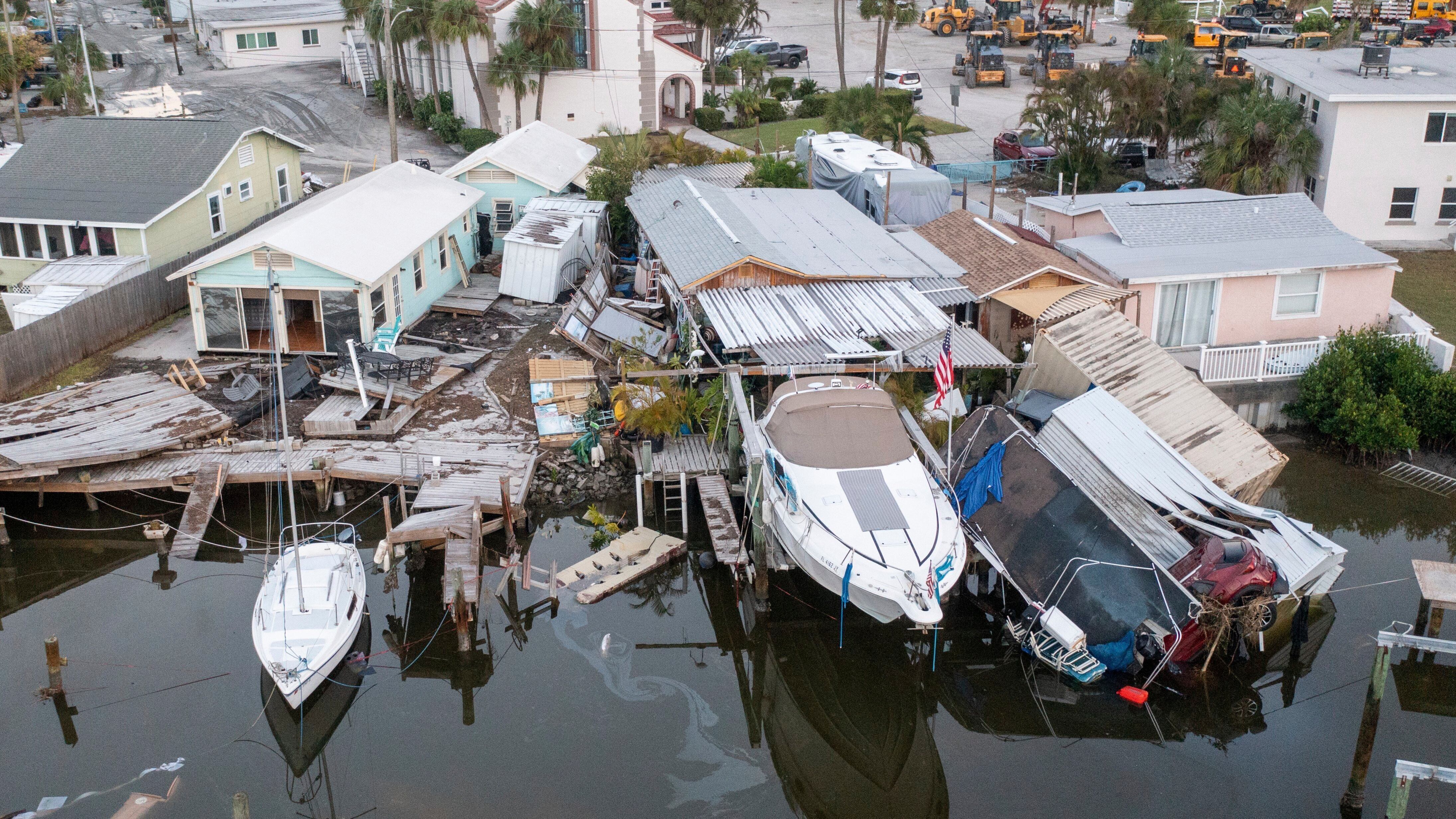PERRY, Florida, USA (AP) — Authorities in North Carolina promised to bring more water and other supplies to the areas affected by the floods on Monday, after Hurricane Helene left a trail of destruction in the southeastern United States and as the death toll from the storm approached one hundred.
PUBLICIDAD
At least 91 people died in several states. One county in North Carolina where the mountain city of Asheville is located reported 30 deaths.
PUBLICIDAD
The governor, Roy Cooper, predicted that the number would rise as rescuers and other emergency workers reached isolated areas with blocked roads, damaged infrastructure, and widespread flooding.
Authorities were sending supplies by air to the isolated city of Asheville. Buncombe County manager Avril Pinder promised that water and food would arrive on Monday.
"We hear you. We need food and we need water," Pinder stated in a phone conference with the press on Sunday. "My staff has been submitting all possible support requests to the state and we have been working with all organizations that have reached out. What I promise you is that we are very close."
Which were the states most affected by Hurricane Helene?
Authorities warned that the reconstruction after the extensive losses in homes and properties would be long and difficult. The storm disrupted life across the entire southeast of the country. Deaths were also reported in Florida, Georgia, South Carolina, and Virginia.
Cooper asked residents of western North Carolina to avoid traveling, both for their own safety and to keep the roads clear for emergency vehicles. More than 50 search teams were deployed throughout the region to locate stranded individuals.
A total of 41 people were rescued during a single operation north of Asheville. Another mission focused on saving a single child. The crews located the individuals through calls to the 911 emergency number and through messages on social media, said Deputy General of the North Carolina National Guard, Todd Hunt.
The President of the United States, Joe Biden, described the impact of the storm as "devastating" and said he would visit the area this week as long as it did not hinder the rescue and recovery efforts.
In a brief conversation with journalists, he said that the government would provide the states with "everything we have" to assist with their response to the storm.
Hurricane Helene made landfall on Thursday night as a category 4 storm in the Big Bend region of Florida, with winds of 225 kilometers per hour (140 miles per hour). After weakening, the storm moved through Georgia and then reached the Carolinas and Tennessee, where it brought torrential rains that overflowed rivers and streams and left dams at their limit.
Hundreds of water rescues have been recorded, including one in Unicoi County, in eastern Tennessee, where dozens of patients and medical staff were evacuated by helicopter from the roof of a hospital on Friday.
More than two million customers were still without power on Sunday night. South Carolina had the most power outages, and Governor Henry McMaster asked for patience as teams dealt with the numerous downed power poles.
“We want the population to remain calm. Help is on the way, it will just take time,” McMaster told reporters gathered outside the airport in Aiken County.
